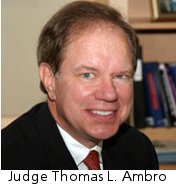Article from: www.thenewspaper.com/news/32/3289.asp
10/12/2010
Federal Court Upholds Discriminatory Toll Rates
Drivers lose federal suit against non-federal use of discriminatory laws.
 The US Court of Appeals for the Third Circuit on September 30 used a loophole to uphold the legality of Massachusetts Turnpike toll road rates that discriminate against most out-of-state drivers. Those participating in the "Fast Lane" program, almost always residents of Massachusetts, receive a 25 cent discount on Allston-Brighton tolls and a 50 cent discount at the Sumner and Ted Williams tunnels. Regular commuters would save between $250 and $500 a year.
The US Court of Appeals for the Third Circuit on September 30 used a loophole to uphold the legality of Massachusetts Turnpike toll road rates that discriminate against most out-of-state drivers. Those participating in the "Fast Lane" program, almost always residents of Massachusetts, receive a 25 cent discount on Allston-Brighton tolls and a 50 cent discount at the Sumner and Ted Williams tunnels. Regular commuters would save between $250 and $500 a year.
Under the federal Constitution's Commerce Clause, states are prohibited from giving differential treatment to in-state and out-of-state business. Residents of New Jersey, New Hampshire, and Massachusetts sued the Fast Lane program because they had E-ZPass transponders that did not qualify for the special toll treatment.
"The Fast Lane Discount Program does not discriminate on its own terms. Enrollment in Fast Lane is open to everyone," Judge Thomas L. Ambro wrote for the three-judge panel. "In this case, the MTA has not limited a benefit solely to residents; rather, it simply offers more competitive toll rates to those individuals, from all states, who choose to enroll in Fast Lane."
The appellate court did not agree with the plaintiffs that there is little practical difference between directly discriminating against out-of-state residents and using the indirect discount program method.
"While benefits of the FLDP accrue to many residents of Massachusetts, they also accrue to every non-resident participant in the program," Ambro wrote. "Stated another way, residents of Massachusetts receive no benefit that is not available to non-residents on equal terms."
The court insisted that there was no significant burden imposed on an out-of-state driver to obtain both E-ZPass and Fast Lane accounts to take advantage of the discounts. The need to "swap and stuff" transponders when crossing state lines to avoid being double-tolled during the journey was found to be a minimal extra burden.
"The fact that more Massachusetts citizens than out-of-state citizens may work in the Boston area, and therefore have a greater incentive to join Fast Lane, does not demonstrate that the program is unconstitutionally discriminatory," Ambro concluded.
A copy of the decision is available in a 50k PDF file at the source link below.
Source: Yerger v. Massachusetts Turnpike Authority (US Court of Appeals, Third Circuit, 10/12/2010)
Permanent Link for this item
Return to Front Page
 The US Court of Appeals for the Third Circuit on September 30 used a loophole to uphold the legality of Massachusetts Turnpike toll road rates that discriminate against most out-of-state drivers. Those participating in the "Fast Lane" program, almost always residents of Massachusetts, receive a 25 cent discount on Allston-Brighton tolls and a 50 cent discount at the Sumner and Ted Williams tunnels. Regular commuters would save between $250 and $500 a year.
The US Court of Appeals for the Third Circuit on September 30 used a loophole to uphold the legality of Massachusetts Turnpike toll road rates that discriminate against most out-of-state drivers. Those participating in the "Fast Lane" program, almost always residents of Massachusetts, receive a 25 cent discount on Allston-Brighton tolls and a 50 cent discount at the Sumner and Ted Williams tunnels. Regular commuters would save between $250 and $500 a year.